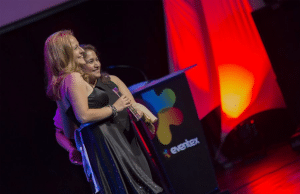By Marko Knez
We can cut event costs by leaving the work to a professional team with the right references, credibility and at least some degree of our trust. Long-term cooperation ensures quantity and thus related benefits, improved recognition of the project’s goals and aims and builds trust and a sense of responsibility.
Mistakes in planning and implementing events are the main reason why this communication tool is not used as often as would be sensible and why it is not achieving the results that should be achieved. Consequently, events are becoming too expensive compared to the effect that they have.
This claim is based on the average evaluation that only a few really professionally designed and organised events improve. Even though there are too many events out there that do not make use of the majority of the available tools and potentials, they are still an exceptionally efficient communication tool. Especially during the recession, when they build relationships with key partners in a special way. This already indicates that it is not essential to cut the event’s production costs but to increase its effect and to perfectly optimise all of its segments, organised using the available means.

The costs of organising an event can always be reduced. How? For reasons of clarification, we will divide these costs into design and organisation costs (DOC) and implementation and production costs (IPC).
Hey! I am first heading line feel free to change me
IPCs are the known costs of products and services available on the market: performers, venue rental, technical equipment, catering and similar. Are you a good negotiator with realistic arguments to sufficiently cut these costs yourself? A better starting point is undoubtedly on the side of those who work more often with these providers, as they can offer them long-term cooperation and they are more familiar with the market, the competition and the alternatives.
Hey! I am first heading line feel free to change me
DOCs are further divided into design and preparation costs and the costs of organisation at the location. In both cases, these costs can best be optimised and the available funds adapted by a professional team with the needed knowledge, experiences and insight into both the strengths and weaknesses of events. The needed time and the costs of organisation at the location itself can also be substantially reduced if the project is excellently prepared and concluded in the appropriate (arranged) time before its actual start and does not require any essential changes in the implementation phase. Design and preparation costs can be reduced by optimising both time and work. The client can substantially contribute to cutting costs by providing clear goals and aims for the project, which need to be in line with the organisation’s mission and aims. An important piece of information for the preparation of the project are the funds that are earmarked for the realisation of an individual event. Proceeding tactically and determining only a framework amount of funds (from – to) is neither constructive not sensible, as each indistinct aspect may lead the design of the project astray and increase its costs.
It is important to know that every event only starts on the day of the event for the visitors while, for the client and the contractor, the event begins with the first communication on the event’s design and preparation.
Tenders also often unnecessarily increase the costs of implementation. You disagree? Looking at the big picture, it is clear that a lot of useless work is done for each tender. Only one provider is chosen and all others receive no pay for their work. As the work is conducted in agencies by employees whose directors need to pay them for this work even if no revenues were generated, such work is financed from reserves or from other revenues. The revenues of agencies come exclusively from performing services for clients.
It is therefore important that the clients are aware that each tender generates costs and each project also partially covers the costs of previous tenders. The decision that a tender is the right choice needs to be a prudent one. There is not enough awareness that the professionals in their field are the ones who stand behind well-implemented and high quality events. Ultimately, it is the provider’s references that speak of the cost effectiveness and quality of the service.














